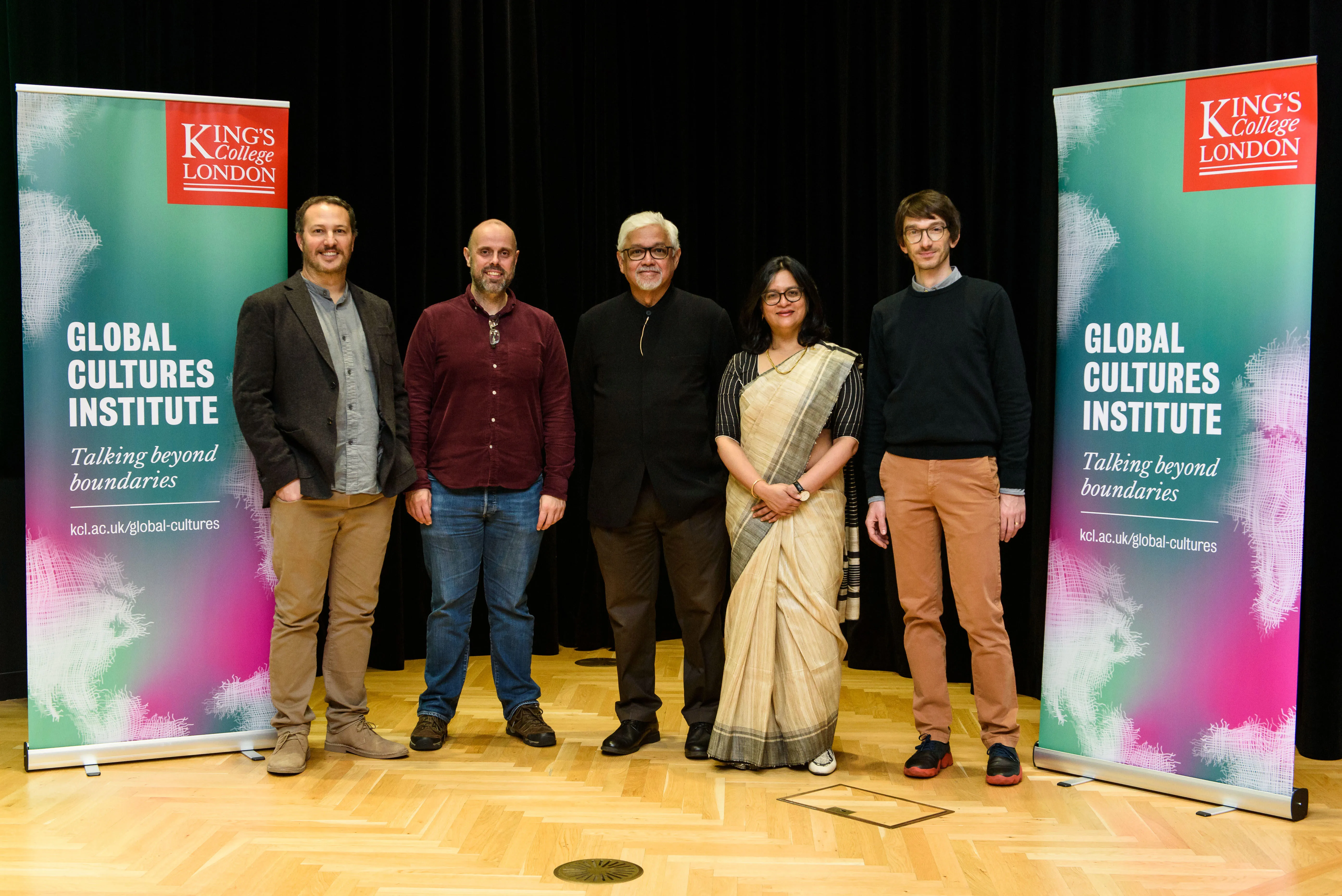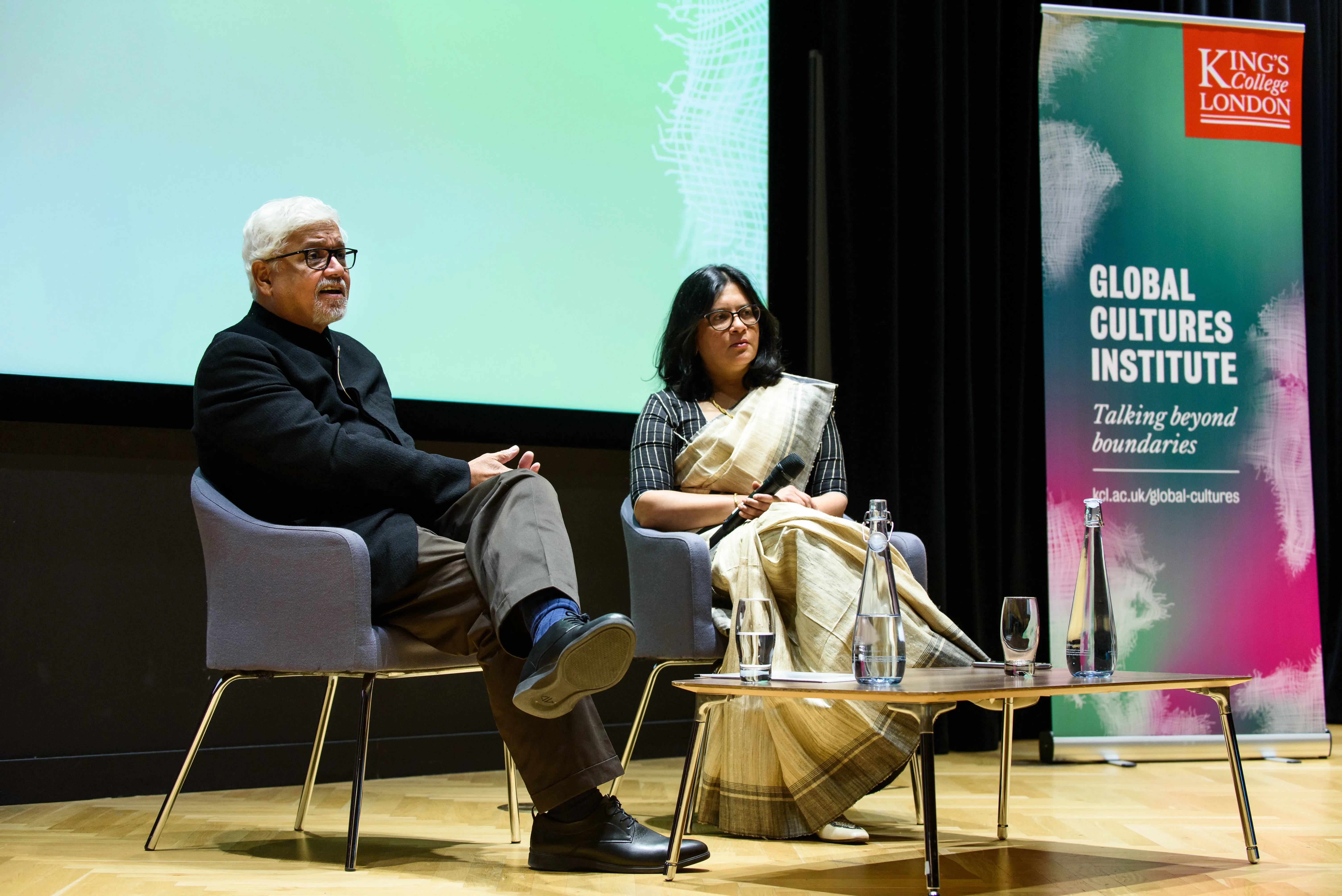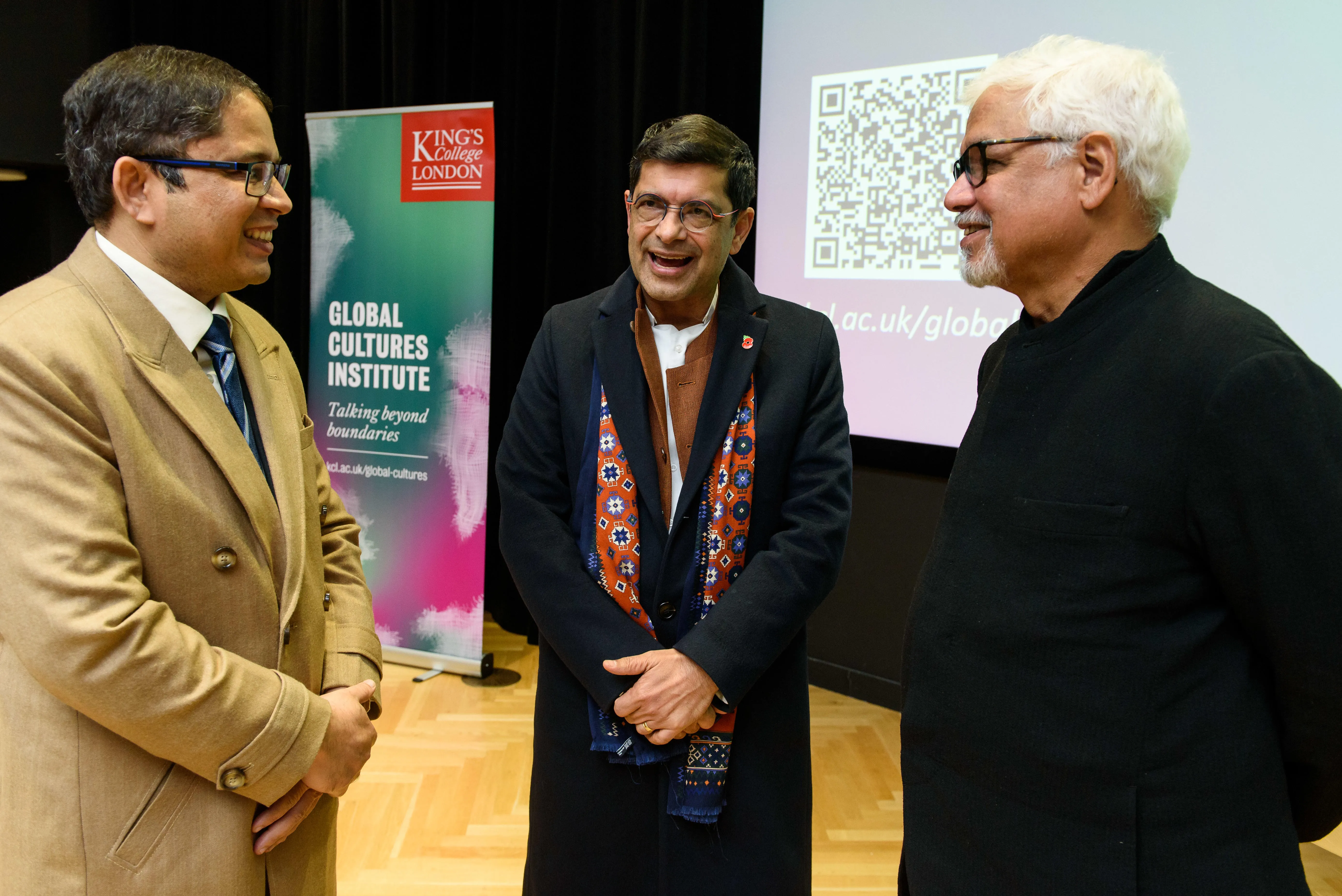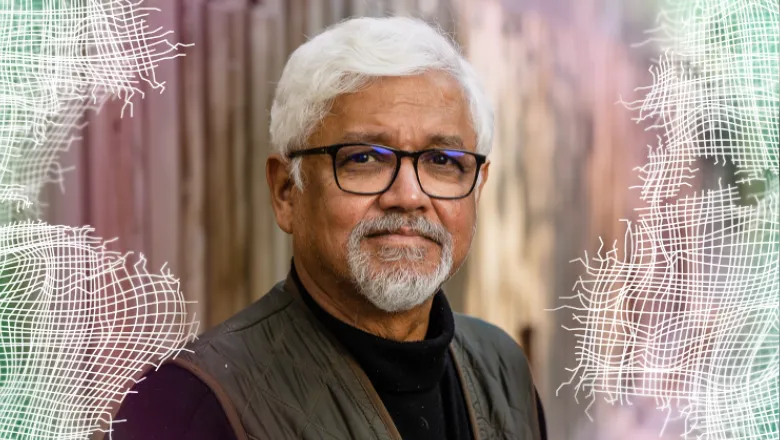At an event co-hosted by the Global Cultures Institute and the India and the Indian Ocean in the Early Decolonial Period: Archipelagic Imaginaries, 1950s-1970s (IATIO) project, Ghosh navigated the consequences of climate change through the lens of the Indian Ocean region.
Ghosh posed that shifts in geopolitics triggered by climate change are leading to increased militarisation, and interrogated why emissions caused by the advancement of military technology are often overlooked in global negotiations on climate change prevention.
Using examples from the Indonesian island of Ternate, Ghosh examined the geopolitical disparities and colonial legacies that prevent consensus on climate change action.
Ghosh proposed that this gap has contributed to an acceleration of militarisation in the Indian Ocean region, which he positions as ‘one of the most striking features of contemporary global geopolitics’.
In conversation with Professor Ananya Jahanara Kabir FBA, Professor of English Literature in the Department of English and former Global Cultures Institute fellow, Ghosh reflected on the pitfalls of relying solely on data to address climate change.
Ghosh also examined the dissonance between Western perceptions of climate change and the way it is viewed and experienced by people in developing countries, who are more affected by the consequences. Through his knowledge of Indian Ocean lives, Ghosh suggested that the gap between praising the ‘cognitive elite’ over those with practical knowledge leads society to value the wrong skillsets, rather than those that would be vital in a catastrophic crisis.
About Amitav Ghosh
Amitav Ghosh is a prize-winning author of fiction and non-fiction. His books have been translated into more than thirty languages and include the novels The Circle of Reason, The Shadow Lines, The Calcutta Chromosome, The Glass Palace, The Hungry Tide, the Ibis trilogy, consisting of Sea of Poppies, River of Smoke and Flood of Fire, and his latest novel, Gun Island. His works of non-fiction include In An Antique Land, The Great Derangement; Climate Change and the Unthinkable, The Nutmeg’s Curse: Parables for a Planet in Crisis, and his latest book, Smoke and Ashes: Opium’s Hidden Histories. Amitav Ghosh holds two Lifetime Achievement awards and six honorary doctorates. In 2024, he was awarded the Erasmus Prize and was also elected to the American Academy of Arts and Sciences.
About the Global Cultures Institute
The Global Cultures Institute fosters interdisciplinary conversations to probe and articulate the limits and boundaries that divide us on the rounds of language, culture, community and identity. By building a critical understanding of their origins and development, the Institute shares its work through research, education and public engagement, finding ways to talk beyond boundaries.
About India and the Indian Ocean in the Early Decolonial Period: Archipelagic Imaginaries, 1950s-1970s (IATIO)
For the entire Indian Ocean region, the period between post-World War II decolonisation in the 1950s and the 1970s was characterised by vast political, cultural and economic changes. What do we know about Indian intellectual and literary cosmopolitanism in the Indian Ocean during this period? To answer this question, the IATIO project takes the concept of ‘archipelagic imaginaries’ and applies an interdisciplinary methodology, combining tools and insights from history, literary criticism and cultural studies. It draws from journals and the popular press, as well as works of fiction and selected case studies of material Indian Ocean sites of cosmopolitan encounters. The aim is to study the renewed investment in archipelagic theory and geocritical approaches.
IATIO is supported by the European Union’s Horizon 2020 research and innovation programme under a Marie Skłodowska-Curie grant agreement No 898029









